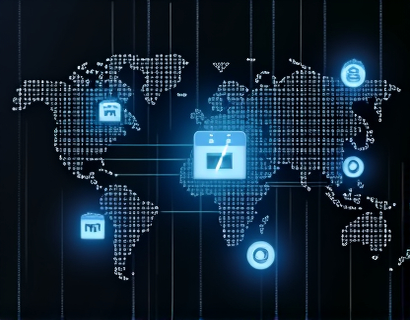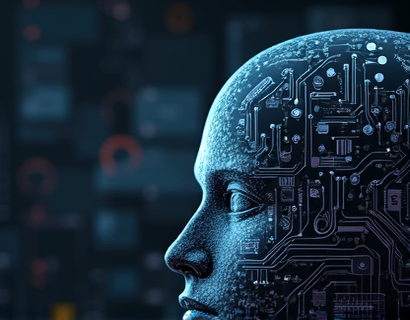AI-Driven Supply Chain Learning: A New Era for Education
The landscape of education is rapidly evolving, especially in specialized fields like supply chain management. With the advent of artificial intelligence (AI), educators, students, and professionals now have access to innovative tools that enhance learning experiences. AI-driven platforms are revolutionizing how we understand complex supply chain dynamics, making specialized knowledge accessible and engaging for all ages. This article explores the benefits of AI-driven supply chain learning, focusing on verified content and child-friendly exploration for educators, students, and professionals.
The Importance of Supply Chain Education
Supply chain management is a critical component of modern business operations. It encompasses the planning, execution, and control of supply chain activities, ensuring that products move efficiently from suppliers to consumers. As global markets become increasingly interconnected, the demand for skilled professionals in this field continues to grow. Education in supply chain management is essential for developing the knowledge and skills necessary to navigate this complex landscape.
However, traditional educational methods often fall short in providing the dynamic and interactive learning experiences that today’s learners require. This is where AI-driven platforms come into play, offering a new approach to supply chain education that is both engaging and effective.
AI-Driven Learning Platforms
AI-driven learning platforms utilize advanced algorithms and machine learning techniques to deliver personalized educational experiences. These platforms can analyze user interactions, preferences, and learning styles to tailor content and resources accordingly. In the context of supply chain education, AI-driven platforms can provide specialized insights, real-time data, and interactive simulations that enhance understanding of complex concepts.
One of the key advantages of AI-driven learning is its ability to provide verified content. In a field as intricate as supply chain management, accuracy is paramount. AI platforms can source information from reputable databases, industry reports, and academic research, ensuring that users receive reliable and up-to-date knowledge. This verification process is crucial for professionals seeking to stay informed about the latest trends and best practices in the industry.
Child-Friendly Exploration
While supply chain education is often geared towards professionals and students, there is a growing need for child-friendly resources that introduce younger audiences to the fundamentals of the field. AI-driven platforms can bridge this gap by offering content that is both educational and engaging for children. By simplifying complex concepts and using interactive elements, these platforms can make learning about supply chains fun and accessible.
For instance, gamified learning experiences can help children understand the basics of supply chain dynamics through interactive simulations. These simulations can illustrate how products move through various stages, from production to delivery, allowing young learners to grasp essential concepts in a safe and enjoyable environment.
Engaging Educators and Professionals
Educators and professionals play a vital role in shaping the future of supply chain management. AI-driven platforms can support their efforts by providing a wealth of resources and tools designed to enhance teaching and learning. For educators, these platforms can offer lesson plans, case studies, and interactive materials that align with curriculum standards.
Moreover, professionals can benefit from AI-driven insights that help them stay ahead in their careers. By accessing specialized information about supply chain services and industry trends, they can make informed decisions and drive innovation within their organizations. The ability to engage with AI-driven platforms allows professionals to continuously learn and adapt to the ever-changing landscape of supply chain management.
Interactive Learning Experiences
One of the most significant advantages of AI-driven supply chain learning is the ability to create interactive experiences that foster deeper understanding. Traditional educational methods often rely on passive learning, where students absorb information without actively engaging with the material. In contrast, AI-driven platforms encourage active participation through interactive quizzes, simulations, and real-time feedback.
For example, learners can participate in virtual supply chain simulations that mimic real-world scenarios. These simulations can challenge users to make decisions based on changing variables, such as demand fluctuations or supply disruptions. By experiencing the consequences of their choices in a controlled environment, learners can develop critical thinking skills and a better understanding of supply chain dynamics.
Accessibility and Inclusivity
Accessibility is a crucial consideration in education, and AI-driven platforms are designed to be inclusive for all users. By offering content in various formats, such as text, audio, and video, these platforms can cater to diverse learning preferences. Additionally, AI can provide personalized learning paths that accommodate individual needs, ensuring that every learner can progress at their own pace.
For children, the importance of accessibility cannot be overstated. AI-driven platforms can incorporate features that make learning more engaging for young users, such as colorful graphics, interactive games, and storytelling elements. By creating a child-friendly interface, these platforms can foster a love for learning and encourage curiosity about supply chain management from an early age.
Real-World Applications
Understanding the real-world applications of supply chain management is essential for learners at all levels. AI-driven platforms can provide case studies and examples that illustrate how supply chain principles are applied in various industries. By analyzing real-world scenarios, learners can gain insights into best practices and innovative solutions that drive success in supply chain operations.
For instance, a platform might showcase how a major retailer optimizes its supply chain to reduce costs and improve customer satisfaction. By examining the strategies employed by industry leaders, learners can develop a deeper appreciation for the complexities of supply chain management and the importance of effective decision-making.
Collaboration and Networking Opportunities
AI-driven platforms can also facilitate collaboration and networking among learners, educators, and professionals. By creating online communities and discussion forums, these platforms can encourage users to share insights, ask questions, and collaborate on projects. This sense of community can enhance the learning experience and provide valuable networking opportunities for individuals pursuing careers in supply chain management.
For educators, collaboration with industry professionals can lead to the development of relevant curriculum materials and real-world projects that engage students. By connecting with experts in the field, educators can ensure that their teaching remains current and aligned with industry standards.
Future Trends in Supply Chain Education
The future of supply chain education is undoubtedly intertwined with advancements in technology. As AI continues to evolve, we can expect to see even more innovative tools and resources that enhance learning experiences. For instance, the integration of virtual reality (VR) and augmented reality (AR) into AI-driven platforms could provide immersive learning experiences that allow users to explore supply chain environments in a virtual setting.
Additionally, the use of big data and analytics will play a significant role in shaping supply chain education. AI-driven platforms can leverage data to provide personalized learning experiences, identify knowledge gaps, and recommend resources that align with individual learning goals. This data-driven approach will enable learners to take control of their education and pursue their interests within the field of supply chain management.
Conclusion
AI-driven supply chain learning represents a transformative approach to education in this critical field. By offering verified content and child-friendly exploration, these platforms make specialized knowledge accessible and engaging for educators, students, and professionals alike. The interactive and personalized nature of AI-driven learning enhances understanding of complex supply chain dynamics, fostering a new generation of skilled professionals equipped to navigate the challenges of the industry.
As we look to the future, the integration of AI and emerging technologies will continue to shape the landscape of supply chain education. By embracing these innovations, we can ensure that learners of all ages have the tools and resources they need to succeed in the ever-evolving world of supply chain management.











































